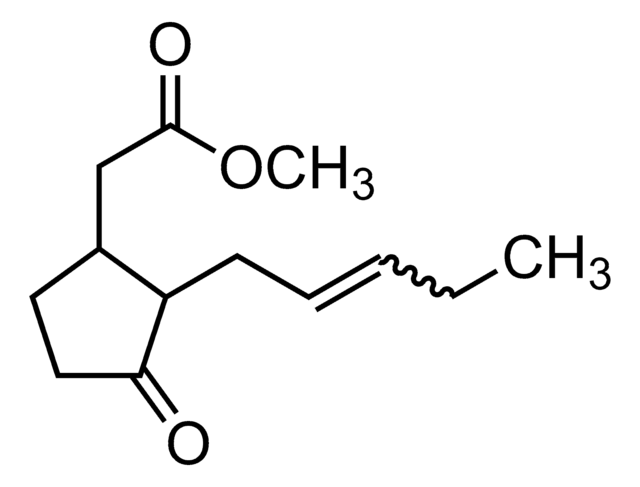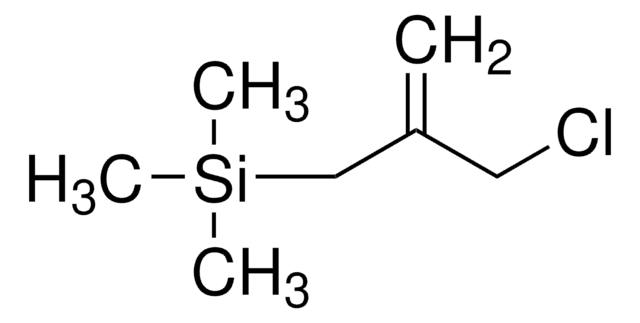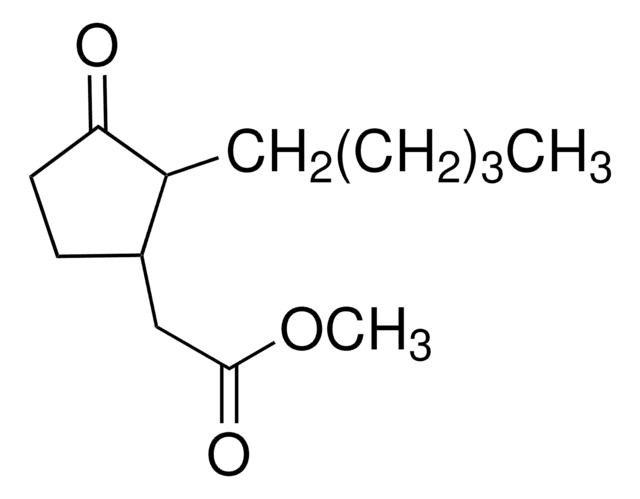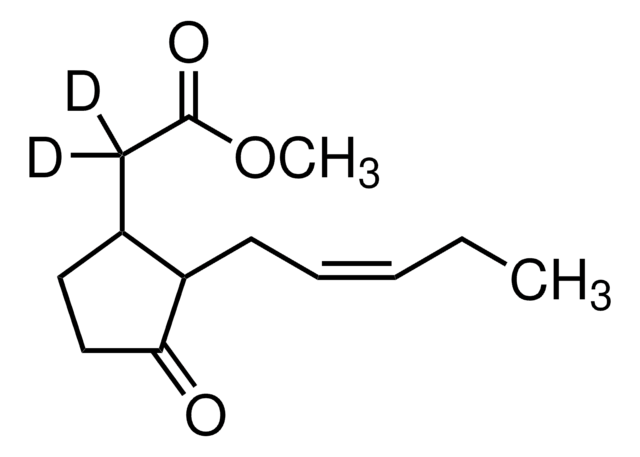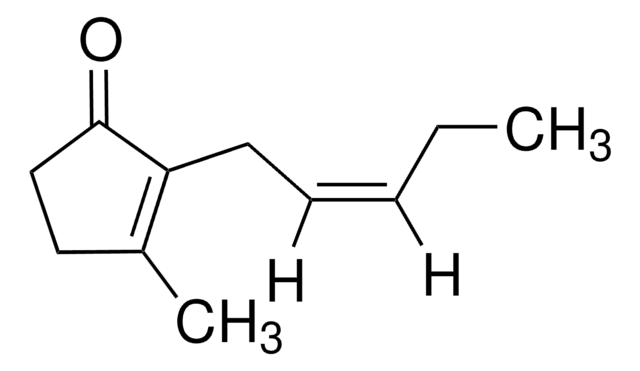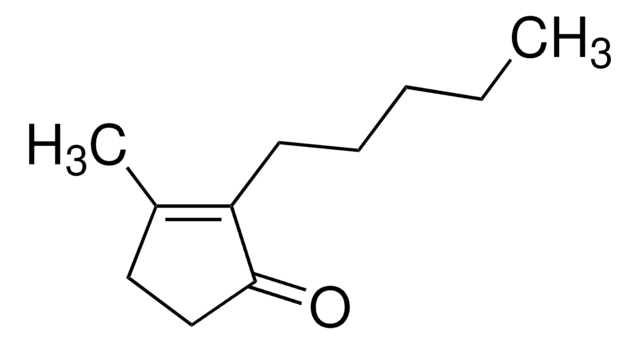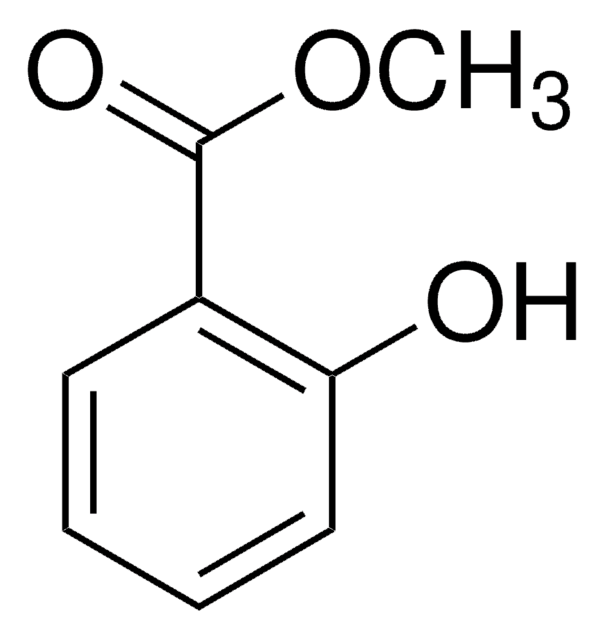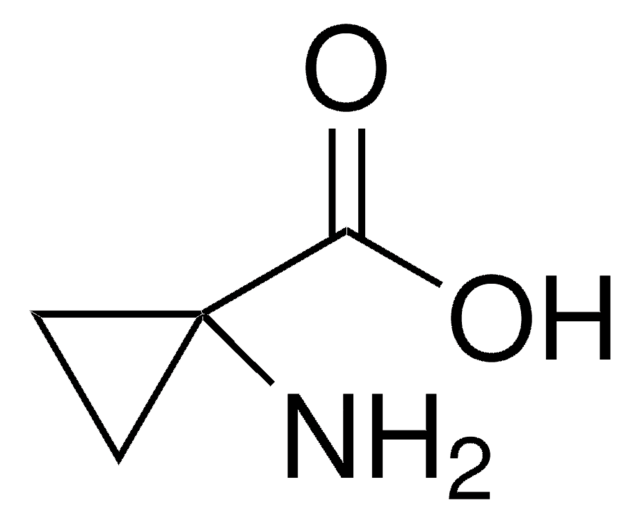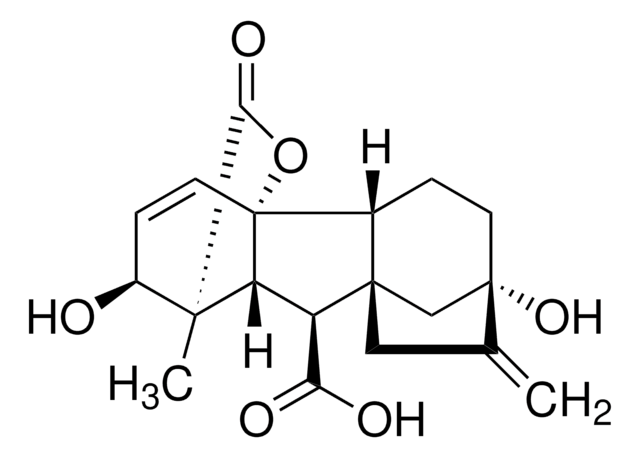392707
Methyl jasmonate
95%
Sinônimo(s):
3-Oxo-2-(2-pentenyl)cyclopentaneacetic acid, methyl ester, Methyl 3-oxo-2-(2-pentenyl)cyclopentaneacetate
About This Item
Produtos recomendados
Nível de qualidade
Ensaio
95%
forma
liquid
contém
Synthetic α-tocopherol as stabilizer
índice de refração
n20/D 1.474 (lit.)
pb
110 °C/0.2 mmHg (lit.)
solubilidade
water: soluble 340 mg/L at 25 °C(lit.)
densidade
1.03 g/mL at 25 °C (lit.)
grupo funcional
ester
ketone
cadeia de caracteres SMILES
CC\C=C\CC1C(CCC1=O)CC(=O)OC
InChI
1S/C13H20O3/c1-3-4-5-6-11-10(7-8-12(11)14)9-13(15)16-2/h4-5,10-11H,3,6-9H2,1-2H3/b5-4+
chave InChI
GEWDNTWNSAZUDX-SNAWJCMRSA-N
Procurando produtos similares? Visita Guia de comparação de produtos
Categorias relacionadas
Descrição geral
Aplicação
Methyl jasmonate may be used in the following studies:
- As a potential anti-cancer agent that shows selective cytotoxic effect towards cancer cells.
- To induce the defensive proteinase inhibitor proteins synthesis in plant leaves.
- As an elicitor to enrich the total anthocyanin content (TAC) in radish sprouts.
- As an elicitor in inducing the biosynthesis of trans-resveratrol, a plant phenol in Vitis vinifera cv. Negramaro cell cultures.
- As a mediator of extensive plant transcriptome reprogramming/ remodeling on exogenous treatment to Salvia sclarea leaves.
- As a modulator in the expression of chalcone synthase (chs) and proline-rich cell wall protein (PRP), two wound-responsive genes in soybean suspension cultures.
- As a starting material in the synthesis of [13C,2H3]-MeJA, an internal standard used in the quantitative determination of MeJA in plant tissues.
- As a test compound in the application of reduced graphene oxide–poly(safranine T) film on glassy carbon electrode (rGO–PST/GCE) in the electrochemical determination of MeJA in jasmine essential oil.
Código de classe de armazenamento
10 - Combustible liquids
Classe de risco de água (WGK)
WGK 2
Ponto de fulgor (°F)
>235.4 °F - closed cup
Ponto de fulgor (°C)
> 113 °C - closed cup
Escolha uma das versões mais recentes:
Já possui este produto?
Encontre a documentação dos produtos que você adquiriu recentemente na biblioteca de documentos.
Os clientes também visualizaram
Nossa equipe de cientistas tem experiência em todas as áreas de pesquisa, incluindo Life Sciences, ciência de materiais, síntese química, cromatografia, química analítica e muitas outras.
Entre em contato com a assistência técnica